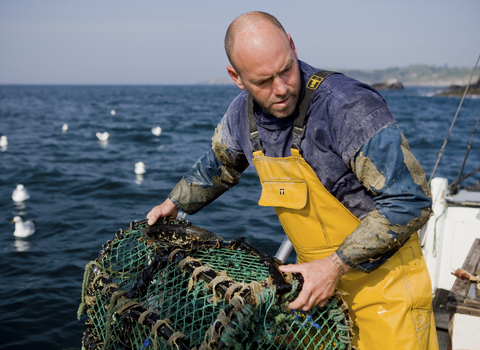Today, the Government launches a key document setting out a vision for the future of UK fisheries, Sustainable Fisheries for Future Generations. This, and the consultation launched alongside it, will inform both the Government’s forthcoming Fisheries Bill and the longer-term development of fisheries management.
Joan Edwards, Director of Living Seas, The Wildlife Trusts says, ‘The Wildlife Trusts are really impressed that the Government is committed to reversing the loss of marine life and where possible to restoring it. This is a giant step forward for nature recovery at sea.’
The Wildlife Trusts welcomes the Command Paper and its aim of increasing the sustainability of fisheries. It addresses a wide range of necessary topics including how management will be introduced through new laws, negotiations with other countries over managing shared fish stocks and how we will continue to meet international obligations. It also sets out objectives around increased sustainability including setting and enforcing sustainable fishing limits, preventing discarding of fish, collecting best scientific data and, most important, protecting the marine environment.
Fisheries management has an important part to play in delivering a better future for wildlife. Fish are part of marine ecosystems and catching fish has wide environmental effects, including the alteration of food webs, damage to seabed habitats and bycatch of whales, seabirds and other non-target species. This on top of the impact on the populations of fish themselves.
There is much that is positive in this new fisheries Command Paper. There is a recognition that true sustainability means healthy fish stocks and a healthy marine environment. In addressing this issue, the Command Paper highlights the links between fisheries management and the wider UK Marine Strategy, restating the commitment to delivering Good Environmental Status by 2020.

